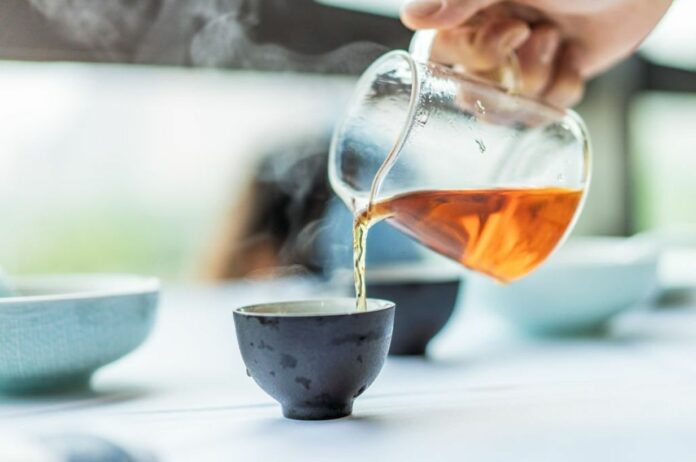A herbal tea that relieves nausea and digestive issues may raise your blood pressure reading so high that you need to go to the hospital, according to a study.
High blood pressure, also known as hypertension, increases the risk of a number of fatal consequences. Even though herbal teas are frequently praised for their alleged health advantages, one particular tea sent a man to the hospital after he had “one to two glasses daily”.
High blood pressure means that your blood pressure is always too high, which makes your heart work harder to move blood through your body. Your chance of developing heart and circulation conditions like a heart attack or stroke will increase over time as a result.
Fortunately, you can reduce your blood pressure with food, though it’s not always clear what to cut out. For instance, herbal drinks are frequently marketed as being helpful and safe, although this isn’t always the case.
According to a study that was published in the Journal of the Canadian Medical Association, licorice tea is a significant cause of hypertension.
Traditional uses of licorice tea include relieving nausea, gastrointestinal issues, and upset stomachs.
But as the study’s press release notes, a case study of a man taken to hospital for a high-blood pressure emergency reveals that licorice tea, a popular herbal drink, is not without health concerns.
“Excessive amounts of some herbal products,” according to Doctor Jean-Pierre Falet, Department of Neurology, McGill University, Montréal, Quebec, “can have harmful side effects.”
“Products containing liquorice root extract,” according to the expert, “can raise blood pressure, cause water retention and decrease potassium levels if consumed in excess.”
High blood pressure brought the 84-year-old man to the emergency room, and doctors determined that a homemade tea he had consumed contained liquorice root was to blame.
He had a headache, light sensitivity, chest pain, weariness, and fluid retention in his legs. His blood pressure was also very high.
The patient, who had a history of high blood pressure, revealed to doctors that he had been consuming “1 to 2 glasses daily” of homemade liquorice root extract known as “erk sous” for two weeks prior to being admitted to the hospital and receiving treatment, according to the news release.
In the Middle East and several regions of Europe, liquorice tea is popular, and during Ramadan, erk sous is particularly well-liked in Egypt.
“Given Canada’s multicultural population, physicians should consider screening for liquorice root intake in patients with difficult-to-control hypertension,” added the author.
Growing research shows licorice tea causes hypertension.
In a different research, which was published in BMJ Case Reports, a 45-year-old woman saw her general practitioner complaining of hot flashes, sweating, and headaches that had been bothering her for four months.
She was examined, and blood tests revealed slight hypokalemia and hypertension (deficiency of potassium).
The patient did her own research and determined that liquorice tea might be the source of her symptoms as she awaited the findings of another study into the reason for her elevated blood pressure.
The patient had been switching from caffeinated tea and fruit-based infusions to up to six cups of liquorice tea every day.
The woman stopped drinking the substance right away, and within two weeks all of her symptoms, including hypertension and hypokalemia, disappeared completely.
What causes this effect?
Glycyrrhizin, a sweet compound found in liquorice root extract, is occasionally used to sweeten meals and beverages.
This substance is thought to have significant hypertensive effects because it can be up to 50 times sweeter than sugar.
Regulators have become interested in glycyrrhizin because of the possible threat it poses.
Adults should take no more than 100mg of glycyrrhizic acid per day, according to the World Health Organization and the Scientific Committee of the European Commission.
In particular, if you use drugs or have a medical problem, please check with your doctor to determine if trying a licorice root supplement is safe and recommended for you, say Holland and Barrett.
Image Credit: Getty
You were reading: A Popular Herbal Tea Found to Raise Blood Pressure Dangerously High
